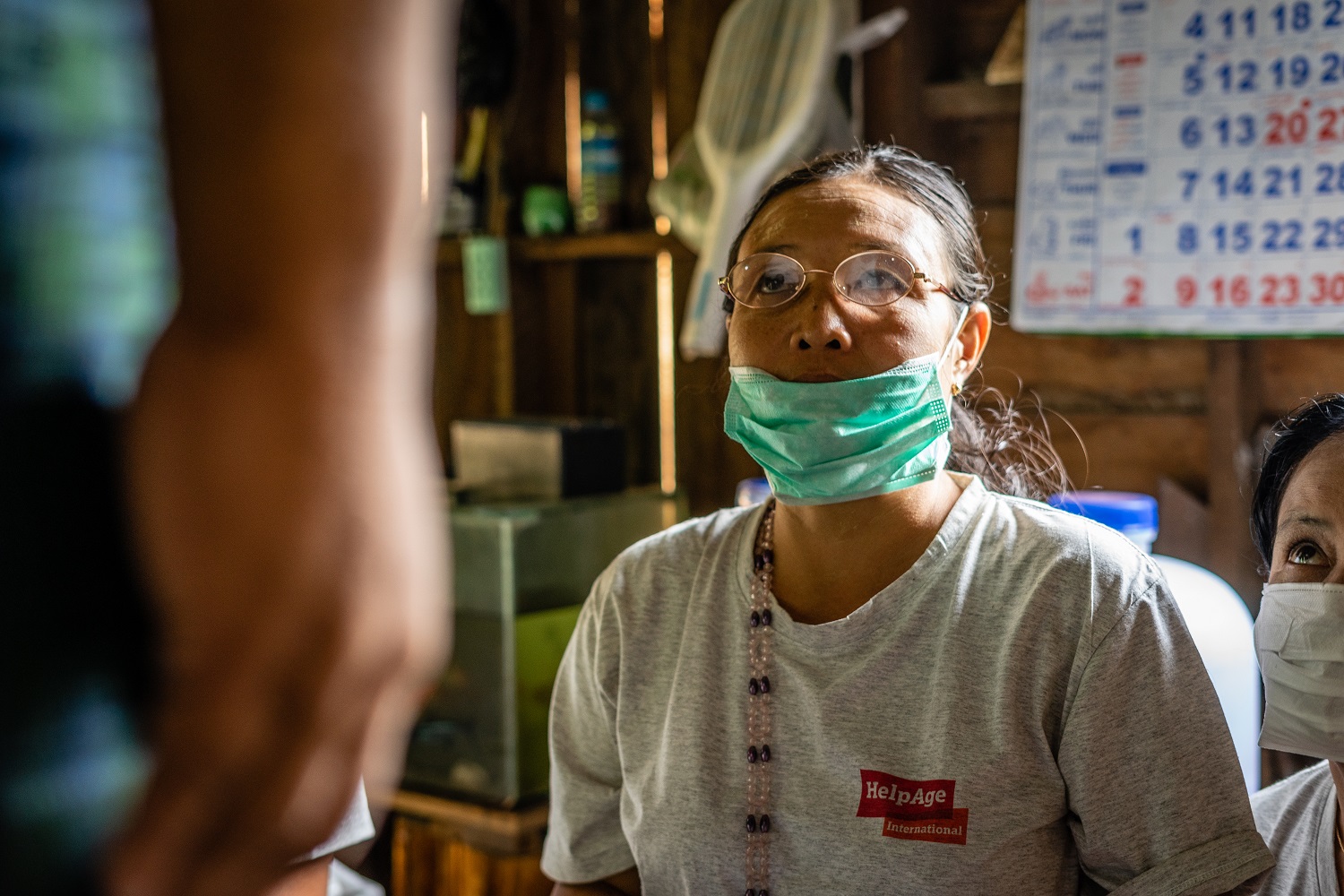
With the confirmation of the first COVID-19 cases in Myanmar on 23 March, thousands of older people’s lives are now at risk if the outbreak is not kept under control. The Government and society must do all it can to educate citizens on the risks and how to prevent infection, according to HelpAge International.
Older people’s weakened immune system makes it harder for them to fight off disease and infection, while they are also more likely to have underlying health conditions, such as heart disease, diabetes or cancer, which can cause severe complications and even death. Data from China showed that the vast majority of COVID-19 fatalities are aged over 60, and mortality rates grow increasingly with age, from 3.6 per cent at 60-69 to 14.8 per cent at 80+, according to the Chinese Center for Disease Prevention and Control.
As of 26 March, there were over 16,800 deaths worldwide, including over 7,500 in Italy, over 3,600 in Spain and over 3,200 in China.
It is vital that these groups take extra precautions to avoid infection, but they will be unable to do so unless they get clear, accurate and reliable information about the threat. It should be available across the country, including in remote communities, in local languages and in different formats to ensure those who cannot read due to literacy or visual impairments are not excluded.
“Older people need to know about their increased level of risk, particularly if they have any pre-existing health conditions. This must be supported by a strong plan to manage community outreach, working one-to-one or in small groups of less than five in order to minimise the risks associated with convening large numbers of people,” said Godfred Paul, Country Director, HelpAge International Myanmar.
The Government and civil society organisations should reach out with simple, easy-to-understand messages that explain how older peopleand those with underlying health condition must:
- Always stay at least two metres (six feet) away from other people, and only leave their home to collect food or medicine.
- Wash their hands regularly and thoroughly with soap or hand sanitiser for 20 seconds.
- Avoid touching their nose, mouth and eyes without washing hands first.
- Clean and disinfect surfaces and objects they regularly touch.
- Make sure they cough or sneeze into a tissue and throw the tissue away immediately. If they do not have a tissue, they should cough or sneeze into their elbow.
- Continue to manage their health existing health conditions by taking their medication and ensure they have a consistent supply.
- If they show COVID-19 symptoms, they must seek medical help immediately.
“Specific measures to support older people must be implemented. These include access to alcohol-based hand rubs where water or soap is scarce, social support to improve mental wellbeing in isolation, and provision of essential supplies for older people in quarantine or self-isolating. Communities must work together to ensure everyone’s wellbeing during the response,” Mr Paul added.
“Access to healthcare is a human right. Steps must be taken to ensure older people, including those in camps for internally displaced people, are treated on an equal basis with everyone else.”
HelpAge International is supporting Myanmar’s response to the COVID-19 response by developing and sharing information materials about the virus to communities.
-ENDS-
Notes:
- 2,986,202 people in Myanmar are aged 65+, equivalent to 5.8 per cent the population.
Please get in touch with HelpAge International for any further information, interviews or photographs.
Contacts:
- Ben Small, Communications Coordinator, ben.small@helpage.org, +959959481869
- Nang Su Hnin Htwe, Communications Coordinator, nangsu.hninhtwe@helpagemyanmar.org, +959269600059
Available for interview:
- Godfred Paul, HelpAge International’s Myanmar Country Director
Read more about older people and COVID-19.
About HelpAge International Myanmar
HelpAge International is working in Myanmar to improve the health and wellbeing of older people in Myanmar through expanding social protection, boosting livelihoods and access to services through community groups and improving healthcare, particularly tackling non-communicable diseases.
